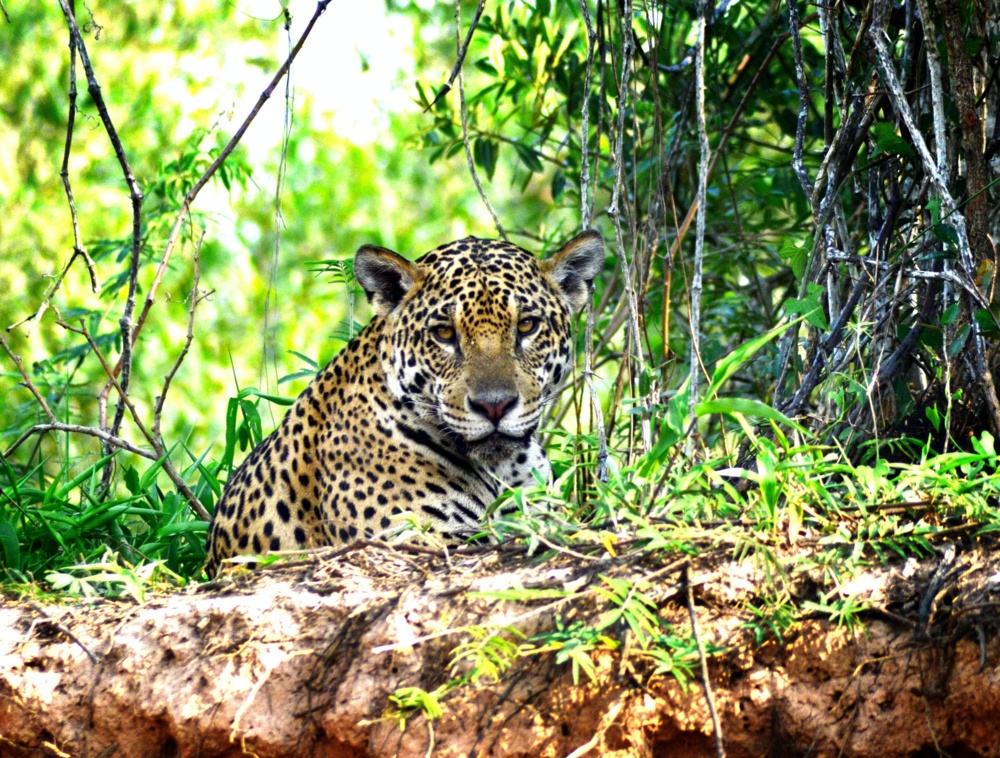
The unique Pantanal wetland is being destroyed: The EU can help save it
The Pantanal is the largest tropical wetland in the world, and as well as hosting a unique array of wildlife it is an important carbon store, helping to regulate global climate. It is under imminent threat of destruction, a new report from EJF has warned. The EU is uniquely placed to protect it, by refusing any trade deal with the South American trade bloc Mercosur unless it is truly sustainable and by rapidly agreeing a new regulation to ban imports linked to deforestation.
Our new report, Paradise Lost, highlights that over 12% of Pantanal forest cover has already been lost due to the rapid expansion of agriculture, primarily for industrial scale cattle production. Between 1985 and 2018 pasture for cattle grazing has increased by 210% in the area. Illegal forest clearance – often achieved through deliberately setting fires – has seen a rapid increase since the start of President Bolsonaro’s term and more than doubled in the first six months of 2020.
Fires in 2020 were the worst ever on record: over 38,000 square kilometres burnt, an area larger than Belgium. If the current rate of deforestation persists, the Pantanal as an ecosystem will effectively disappear by 2050, warns the report.
The Pantanal extends over 17 million hectares and is home unique and unusual species such as jaguars, endangered giant otters and the world’s largest parrot. Its waterlogged soil in an important carbon store. It has been recognised by UNESCO as a globally important biosphere and designated as a Ramsar wetland of international importance. However, these international accolades are unable to safeguard it, and less than 5% of the Pantanal is protected; the rest is under private ownership, the majority of which is used for cattle grazing.
The Pantanal is also at risk from global heating, and in 2020 rainfall from January to May was 50% lower than average. This makes extreme fire seasons more likely eroding its efficacy as a carbon store.
The Pantanal is currently home to an estimated 1.2 million people, including several indigenous tribes. Fires have impacted every indigenous territory in the Pantanal: one of the worst hit has been Guató tribe, who had 90% of their land burned in this year’s fires.
Brazil is the single biggest exporter of agricultural goods to the EU, which in turn is the largest foreign direct investor in the Brazilian economy. Up to a fifth of EU soy imports and 17% of beef imports from Brazil may be linked to deforestation in key biomes.
A trade deal between the EU the South American trade bloc Mercosur, which includes Brazil, Argentina, Paraguay, and Uruguay, and represents 295 million consumers is currently under consideration. As it stands the deal would promote trade in some products – particularly soy and beef – that have been clearly linked to deforestation.
While the deal pledges to work towards Paris Agreement targets and the Sustainable Development Goals, it currently lacks any effective method of enforcing this. The deal could therefore dangerously accelerate ecosystem degradation and should be rejected in its current form, says EJF.
The European Commission is currently considering a new regulation on deforestation that would potentially ban deforestation-linked products from the common market. If this legislation is agreed and is well designed and fit-for-purpose it could be a key tool to protect irreplaceable ecosystems like the Pantanal.
A small proportion of companies are responsible for the majority of deforestation risk in supply chains from Brazil. In some ways this is good news because it means that – if new regulatory measures currently being considered are fit for purpose – the EU could easily identify these producers and deny them access to the EU market in the absence of action to achieve real sustainability. It is these kinds of mechanisms, which distinguish between goods with transparent supply chains and low deforestation risk, and those that are driving the destruction of the Pantanal, Amazon, and Cerrado, that are urgently needed. The EU has a chance to show international leadership and act to protect these globally important ecosystems by agreeing the new Regulation currently under consideration and refusing access and trade where products are causing such harm.
SIGN UP FOR OUR EMAILS AND STAY UP TO DATE WITH EJF